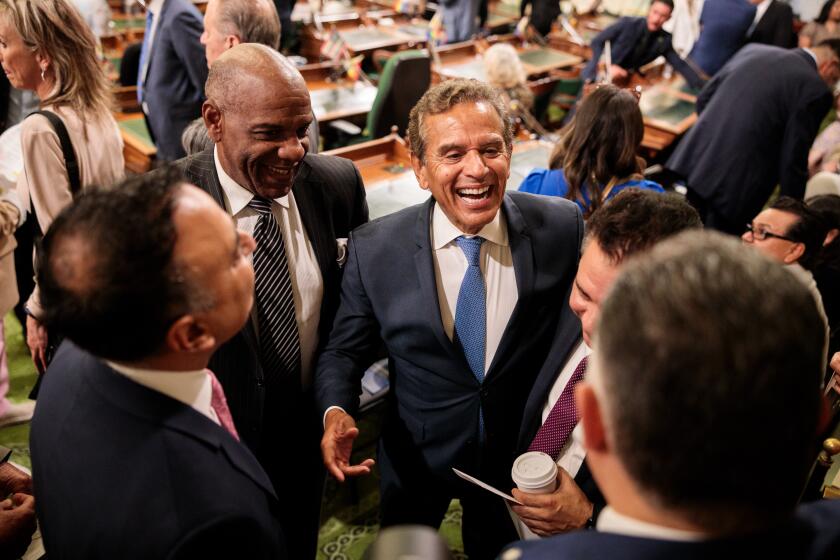Qualcomm lawyers may be punished
Qualcomm Inc.’s former lawyers, who lost a patent-infringement case in San Diego against rival Broadcom Corp., face possible fines and other sanctions for what a judge called an “organized program of litigation misconduct” in the case.
U.S. Magistrate Judge Barbara Major ordered 14 lawyers from the firms Heller Ehrman and Day, Casebeer, Madrid & Batchelder to appear in court Aug. 29. She said they could face monetary sanctions or even referral to the California State Bar for investigation.
The threatened sanctions stem from a January trial in which, the trial judge later found, witnesses for San Diego-based Qualcomm had testified falsely and its lawyers had failed to turn over documents that they were required to give to Broadcom.
Also Tuesday, Qualcomm, trying to stem the damage from multiple court losses, urged a federal judge in a separate case it lost to Broadcom in Santa Ana to reject the Irvine-based company’s request for a ban on sales of cellphone chips that infringe on Broadcom’s patents.
Broadcom had asked U.S. District Judge James Selna to impose the ban after a jury found in May that Qualcomm had violated three patents on Broadcom technologies.
Tuesday’s events followed the resignation Monday of Louis Lupin as Qualcomm’s general counsel. Lupin, leader of a legal strategy that included vigorous attacks on competitors, was not named in Major’s order. The company, which has hired new lawyers, said he had resigned for personal reasons, but industry analysts said he took the hit for a company that now appears to want to change its ways.
Besides losing the San Diego and Santa Ana cases, Qualcomm lost before the U.S. International Trade Commission, which found that the company had violated Broadcom patents. The commission banned imports of chips and of handsets containing chips that violated the patents. The Bush administration upheld the ban Aug. 6.
In the San Diego case, U.S. District Judge Rudi Brewster this month found that Qualcomm and its lawyers had purposely withheld thousands of documents related to a suit against Broadcom over video-compression technology used in television set-top boxes. As punishment, the judge ruled Qualcomm’s patents unenforceable.
In an April 9 letter to Brewster, lead trial lawyer James Batchelder of Day Casebeer in Cupertino, Calif., apologized for “not having discovered” the documents sooner and for making legal arguments that the documents later showed were false.
Executives with the firm and with San Diego-based Qualcomm didn’t immediately return messages seeking comment.
Tom Orewyler, spokesman for San Francisco-based Heller Ehrman, said the firm “is proud of its adherence to the highest standards of professional integrity and ethical representation of our clients, and we believe our representation of Qualcomm in this engagement was entirely consistent with those values. We plan to address the matter, as directed by the court.”
In the Santa Ana case, a court order requiring Qualcomm to pay royalties for use of the technology would be inadequate because the companies are competing for the same customers, William Lee, a lawyer for Broadcom, said Tuesday at the start of a four-day hearing.
“Continued infringement is irreparable and can’t be addressed by monetary relief,” Lee said in his opening comments to Selna.
Evan Chesler, a lawyer for Qualcomm, said during his opening statement that an order preventing the company from making the chips would cost it “billions of dollars” and disrupt competition between wireless carriers.
A recent Broadcom licensing agreement with Verizon Wireless, which allows the carrier to sell phones with the infringing Qualcomm chips, shows that there is a commercial solution to the patent dispute, the lawyer said.
Qualcomm’s technology powers the networks of Verizon Wireless, Sprint Nextel Corp. and other carriers.
Other patent and business litigation continues to dog Qualcomm, which is facing court cases and investigations elsewhere in the U.S. and in Europe and South Korea.



